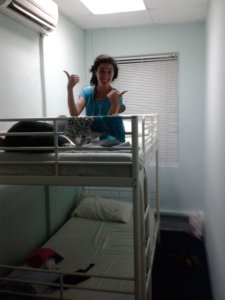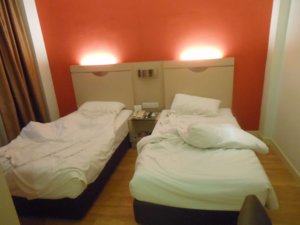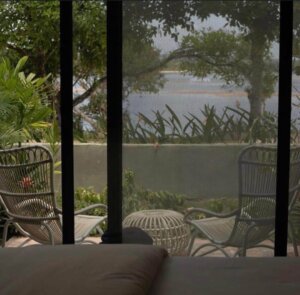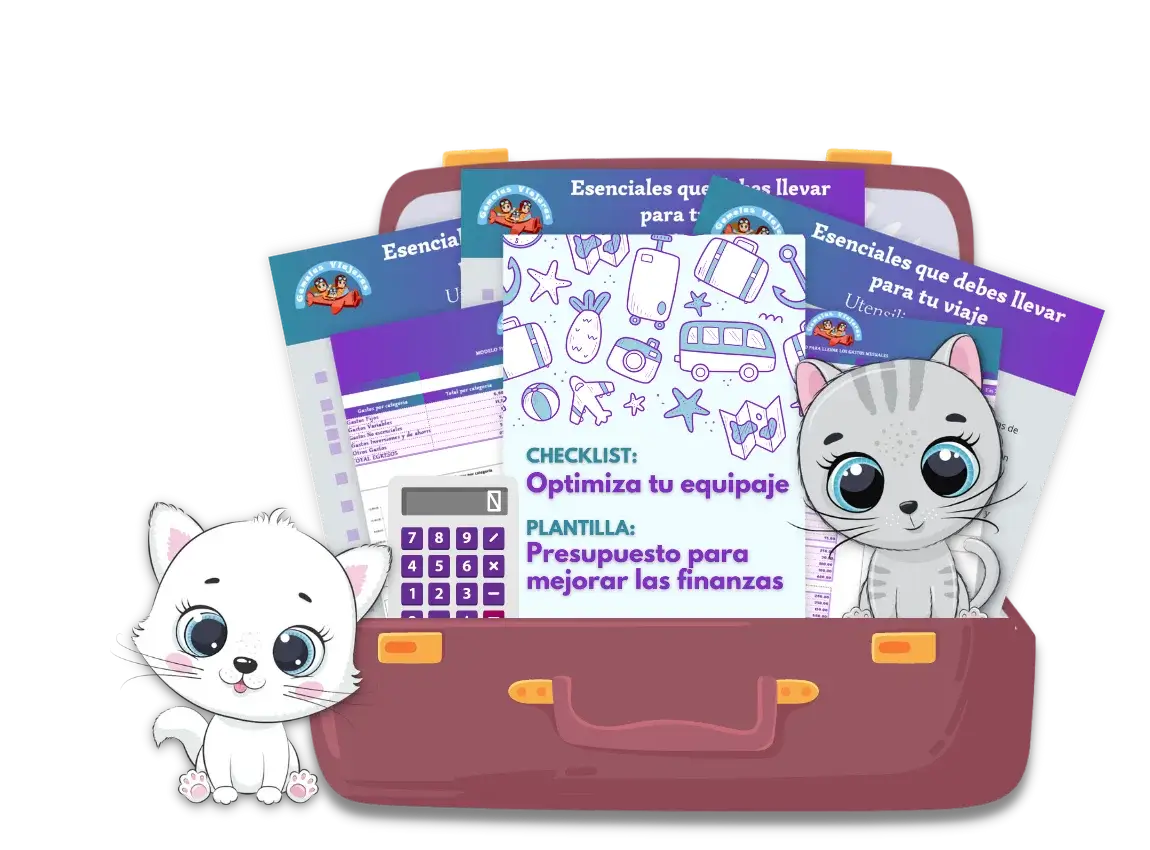One of the things that most worries and is most worthy to consider when embarking on our trips is, without a doubt, the issue of accommodation.
This article is based on our experiences through accommodations in different parts of the world. We do not take into consideration luxury accommodations or hotel chains. Rather, these are valuable tips aimed at those who, like us, travel on a limited budget.
We are going to tell you about the three main hosting services we have experienced. So be prepared to immerse yourself in this fundamental topic for every traveler.
Couchsurfing
Wbsite couchsurfing.com. These are free accommodations. It’s for real!
It’s actually a hosting exchange platform. “Couchsurfing” comes to mean something like “surfing on sofas”.
Well, it’s not like you’re going to arrive and be sent to sleep on a couch. Couchsurfing is a hosting exchange network, which means that it operates under the principle of reciprocity.
 Here the first thing you do is register, open an account. Then you offer either your home or a room for travelers who go at any given time to the place where you are living.
Here the first thing you do is register, open an account. Then you offer either your home or a room for travelers who go at any given time to the place where you are living.
The important thing here is to accommodate people, treat them well and help them as much as possible and that they leave you good references, good comments That way it is easier for you when it is you who requests accommodation in a destination in the world.
Pros: Did we mention that they are free?
Cons: To have more opportunities to be stayed, you need to have good comments on the site. You should start by hosting people in your home and then apply to be housed.
Hostels
They are inexpensive sites whose price is determined by the needs and amenities you are willing to sacrifice. You can get prices from 10 USD onwards and it is practically only for the right to spend the night.
However something very important is that they generally do not have a kitchen. That is, you will not have a refrigerator and this is something limiting, but you have to take it into account if you are going to take this type of accommodation.
Another thing to keep in mind: forget about privacy. Generally, these accommodations are for a minimum of two or three travelers, whether they know each other or not, but this can be an excellent opportunity to meet and interact with people from different parts of the world, one of the things we love most about traveling.
For this type of hosting, we consult websites such as hostelworld.com. 
We also use booking.com, It is available in 43 languages. You can search, houses, hotels, apartments and other types of accommodations all over the world.
Prices: Generally in Europe depending on the country, they can be between 15 €/$ to 20 €/$ per night per person. In more expensive countries such as Switzerland it can rise up to 25 €/$. If you want additional services such as the right to wash your clothes (which is appreciated), lingerie and other “amenities”, you will have to pay extra. Washer and dryer about 5 €/$. The rent of towels: about 2 €/$.
Pros: extremely economical offers. You can get a lot of options and you will meet many other travelers.
Cons: Refreshments, household products, lingeries, washing machines are paid separately. They lack a kitchen.
Airbnb
The third option is Airbnb. The offer is varied: from complete apartments to rooms.
It is also a platform where people who sign up have places available to host people and offer them here.
It is still economical for short stays, but it is more expensive than hostels. And this is because they usually do have everything included: the right to use the kitchen, the washing machine, the dryer, the refrigerator, the equipment, etc.
One peculiarity – perhaps Airbnb’s policy – is that they never specify an exact address. Once you book is when you can contact the owner and that is when he will send you the full address.

The price ranges also vary according to the city, distance from the center, nature of the accommodation, which includes, etc.
In the description of the accommodation, the platform includes a small map. But it’s not an interactive map. It’s like a screenshot. In that image the surroundings of the accommodation appear.
You have the option to ask the owner questions. You can ask him how far it is from bus stops, train or metro stations, etc.
Prices: From 13 €/$ up to 1500 €/$.
Pros: All inclusive. We can use their great filters to find a place that meets our expectations. Reasonable prices, countless options and the opportunity to get to know the authentic local life.
Cons: The exact address is not specified until you make the reservation. This can be a bit of a problem when choosing the right hosting.
Tips and recommendations

Tip 1: Always read the conditions that apply. This is very important. Every accommodation or house has its rules and we must abide by them. Once, in Vietri Sul Mare, Italy, we were recharged €25 to arrive after the check-in deadline. That was in the conditions, but we had not read them and apart from that the conditions were written in Italian. Although we arrived late for issues that are not attributable to us, we were penalized. Had we known, we would have been prepared. So we paid €25 that wasn’t budgeted.
Tip 2: When we ask questions we have to be more specific. Also in Italy, before leaving we asked how many minutes was the accommodation of the bus stop. We were told it was only 6 minutes. When we arrived it was six minutes… but by car! And we assumed “6 minutes walk”. And for dessert it was a rising slope. We spent 20 minutes carrying some heavy suitcases to get to the accommodation.
Tip 3: Always have a data plan on your phone to communicate when you arrive. There are places where one only enters a code for check-in to be able to enter the apartment and that’s it. But there are others where there has to be a person to open you up. And that person won’t always be waiting at the door.
Tip 4: It is a good idea when one is making the reservation to ask the owner, if it is possible to give you the wi-fi key of the accommodation. Not everyone does, but it doesn’t hurt to ask. In Zürich it happened to us that we arrived at the accommodation and we had no data plan. We arrived and there was no one to greet us. So we had to wait until it occurred to us to go with the neighbor opposite, which has nothing to do with the lodging and he was able to communicate with the owner, then we were able to get the key to access the room. Moral, always ask how to access the building or apartment if you need a code or call someone etc.
Tip 5: Ask the owner or manager of the site about where you could eat. Rather, ask where they go out to eat. Generally the places where they would eat, the food is of good quality and much cheaper than the sites that are intended for tourists.
Tip 6: It is also important to ask the owner if you have the possibility to store your bags at the time of check-out. Normally the check-out time is around 11am or 12 noon, however you can get to know more about the city or visit a place you could not do the day before, then it is more comfortable to leave your bags and take advantage of the day or hours you have left in the city.

Well, these are the sites we use for our expeditions around the world. Always remember that common sense is what should guide us when looking for accommodation.
“To travel is to discover that everyone was wrong about other countries” – Aldous Huxley
